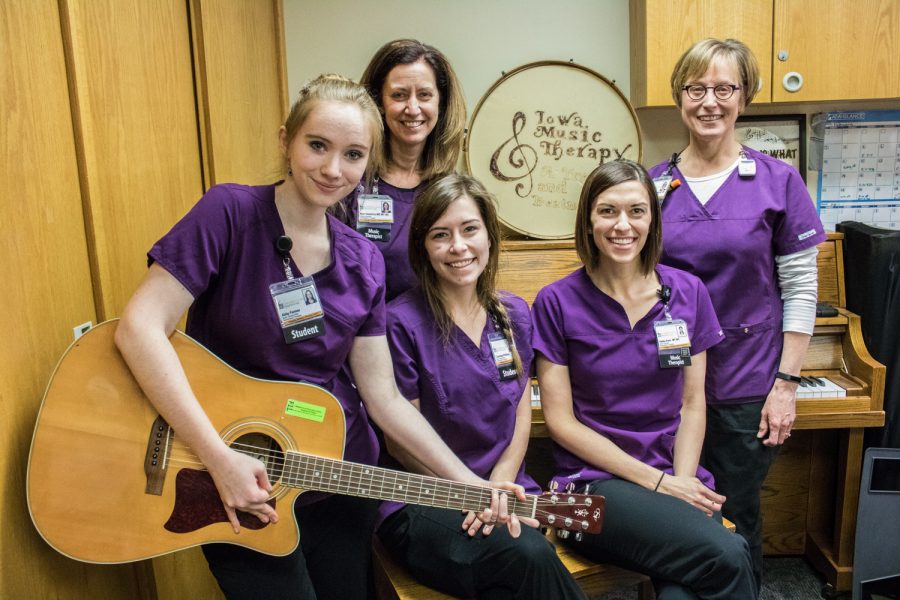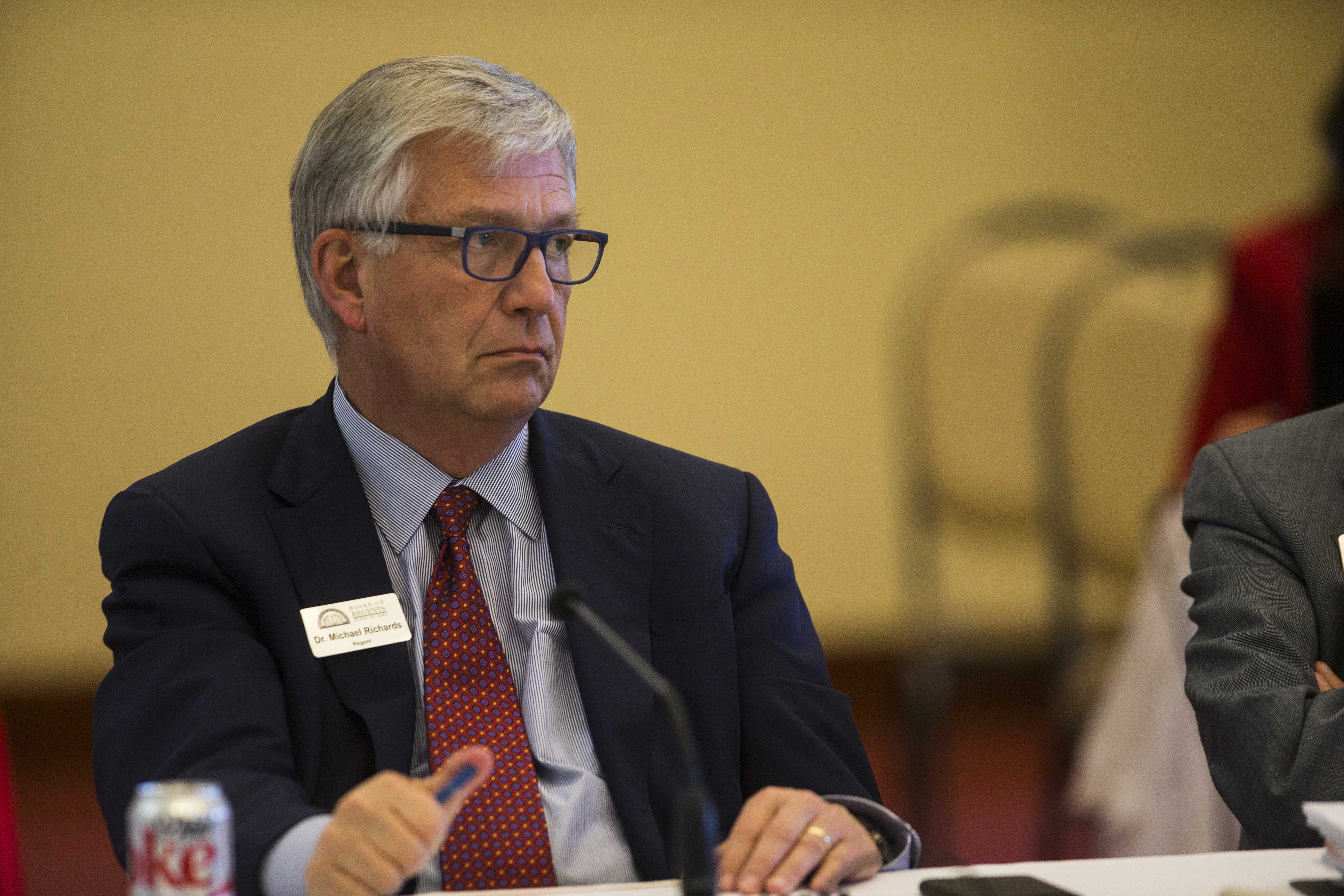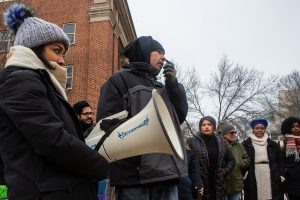Iowa City music therapists celebrate by bringing awareness to the community
The University of Iowa’s Music Therapy Program continues to thrive on campus, and this week allowed music therapists from all over Iowa to gather and celebrate the difference their practice has made during Music Therapy Week.
(From left) Student intern Abby Farmer, clinical specialist Kim Hawkins, student intern Courtney Phillips, senior activity therapist Katey Kooi, and pediatric specialist Kirsten Nelson pose for a portrait at the University of Iowa Hospitals and Clinics on Wednesday, February 27, 2019.
February 28, 2019
Drum sets, guitars, and shelves stocked with colorful instruments and other noise-makers are only some of things that can be found in the office of a music therapist at University of Iowa Hospitals and Clinics. The office has held the secrets to a number of therapeutic breakthroughs, which have been celebrated over Music Therapy Week.
UIHC music therapist Kirsten Nelson said the kaleidoscopic yet small office can often be mistaken by someone looking in as a place for simple, play-based therapy meant for children. However, UIHC music therapists spread awareness that their practice goes far beyond the stereotypes usually associated with music therapy.
Feb. 24 signaled the beginning of Music Therapy Awareness week, a week celebrated in Iowa primarily by the Iowa Chapter of Music Therapy and among therapists nationwide.
RELATED: 40 years of measuring music therapy
On campus, the UIHC music therapist team has spread awareness through presentations, media spotlights, social media, and key chains equipped with quick-facts. The Iowa Chapter of Music Therapy also held a get-together at Big Grove Brewery & Taproom on Feb. 25, one of its many social gatherings planned for each day of the week across the state.
For student intern Courtney Phillips and her fellow music therapists, spreading awareness about the reality of what music therapy is extends beyond just one week out of the year.
“It’s so much more than just walking into a room and singing someone’s favorite songs,” Phillips said. “It’s not necessarily something that you can learn out of a textbook.”
Kim Hawkins, a nearly 30-year music therapist working in neonatal intensive care, said music therapy is a growing field. The program at the UI is one of the best offered in the state, alongside the one at Wartburg College in Waverly, Iowa, she said.
Katey Kooi, one of Hawkin’s colleagues, said music therapy covers a wide range of emotional and cognitive issues. Therapists work with patients of all ages, using music to help express emotion, make tedious physical-therapy exercises easier to perform, and even reduce pain.
“People want more say in their health care,” Hawkins said. “They want more quality in their health care. They see the benefits music therapy can provide for them.”
New research has even shown music therapy to be a possible solution for physicians to use to help lessen the quantity of opioids they prescribe their patients for pain relief, Kooi said.
“Providers want a different option to give their patients,” Kooi said. “They don’t want to prescribe just medicine. They’re looking for a lot of different ways to address pain, and music therapy has a lot of research to support how that would be helpful.”
Kooi said that while many music therapists struggle to deal with misconceptions about their practice, UIHC provides a supportive environment that respects the important work she and her fellow therapists do.
“I think we’re all very fortunate to work here where there’s such a great appreciation from every level at the hospital,” she said. “From the housekeeping staff who sing along while they’re cleaning the other side of the room, to the doctor who walks in, sees you’re doing music therapy and says, ‘Oh, this is great, I’ll come back later.’ They value taking time to learn about it and really support what we do.”






